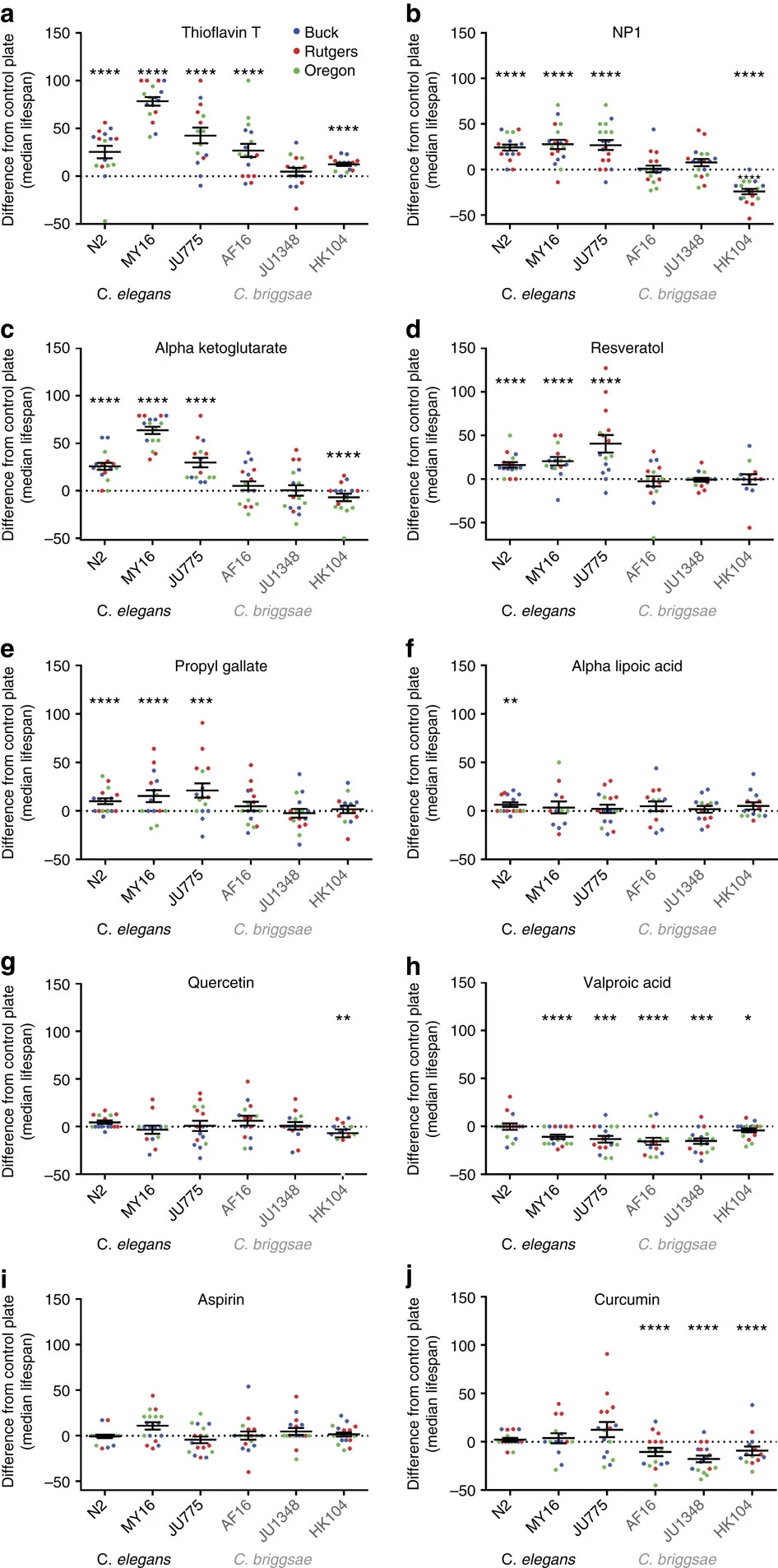TLDR: From 6 drugs that extended lifespan in C Elegans, only 1 extended lifespan in other strains of worms, Rapamycin wasn’t tested here
https://www.nature.com/articles/ncomms14256
-
CITP tested 12 drugs that allegedly extended lifespan in C Elegans
-
6 worked in C Elegans, from this only 1 tested drug worked on all 3 strains of worms (C Elegans, C Briggsae, C Tropicalis)
-
What worked on all 3 strains of worms? Thioflavin T
-
What worked only on C Elegans but not other? NP1, AKG, Resveratol, Propyl Gallate, Alpha lipoic acid
-
Rapamycin, Rapalogs, Acarbose or 17 alfa estradiol weren’t tested here
-
Effects are usually the biggest in N2 type of C Elegans - because almost all drugs that extended lifespan were tested on N2 type of C Elegans (which means that there is a problem in longevity research - because everything focus on only this type of animal)
-
C Elegans, C Tropicalis and C Briggsae have about 30 - 100 mln years of evolutionary genetic difference, almost the same difference as humans and mice
